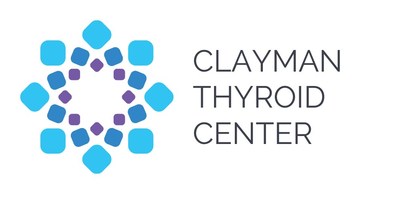A clinical trial published this week demonstrated more than a 50% reduction in the incidence, severity, and duration of vocal cord injuries during thyroid cancer surgery when human amniotic membrane was used to protect the vocal cord nerve.
|
TAMPA, Fla., Feb. 3, 2022 /PRNewswire/ -- A clinical trial published this week demonstrated more than a 50% reduction in the incidence, severity, and duration of vocal cord injuries during thyroid cancer surgery when human amniotic membrane was used to protect the vocal cord nerve. The study was conducted by the surgeons at the Clayman Thyroid Center and Norman Parathyroid Center at the new Hospital for Endocrine Surgery and included more than 300 patients undergoing thyroid cancer surgery comparing the use of amniotic membrane to the standard operation where no amnion is used. Vocal cord nerve injury is the most significant complication of thyroid and parathyroid surgery, occurring in 3 to 80% of the operations depending on the extent of the dissection and the experience of the surgeon. Vocal cord nerve injuries typically take 3 months or more to resolve, but can be permanent in as many as 10% of patients undergoing thyroid surgery. This injury is also the most common cause for malpractice suits against surgeons performing thyroid and parathyroid surgery. Dr Gary Clayman, the lead author of the study, notes that significant improvements were seen in the incidence, severity, and duration of nerve injuries. Voice and swallowing problems occurred much less commonly, but when they did occur, they resolved in less than half the expected time. "This type of nerve injury, including even short-term vocal dysfunction, has a tremendous impact on patients' physical and psychosocial well-being," said Dr. Gary Clayman. "Until now, there was nothing a surgeon could do to decrease the likelihood of this terrible complication from happening. The use of amniotic membrane in these patients represents a significant unmet medical need which should be adopted quickly by other neck surgeons." The authors note that the method of action of the amniotic membrane is presumed to be two-fold; a physical barrier to scaring and a biologic effect mediated by growth factors. Surgeons placed the very thin membrane directly on the vocal cord nerve during surgery and left in place to provide a physical barrier protecting the nerve from scarring during the healing process. The direct placement onto the nerve also assures that it is bathed in the numerous growth factors and inflammatory mediators known to be present in human amniotic membrane which have been shown to dramatically increase nerve healing in multiple human and animal trials. Vocal cord nerves are at risk of injury during all surgical procedures on the thyroid and parathyroid glands, but are also a major complication associated with surgery of the esophagus, anterior cervical spine, and with most forms of head/neck and oral cancers. "Although this study was conducted in thyroid surgery patients only, it is the exact same injury that can occur in all neck surgeries, thus we expect all surgeons who operate in the neck will eventually adopt this method of vocal cord nerve protection" said co-author Dr. Jim Norman. "The results were so impressive that the use of amniotic membrane is now standard on all thyroid and parathyroid operations at the Hospital for Endocrine Surgery where the nerve is exposed," noted Dr. Clayman. The study, published in the journal Cell Transplantation is the second clinical trial to show a significant protective effect of human amniotic membrane on vocal cord nerve injuries in patients undergoing thyroid surgery. The first study was smaller in scope but showed very similar results, and was conducted at Yale University by Dr. Tobias Carling and published last October in the journal Endocrine. "Performing more than 100 thyroid and parathyroid operations per week allows surgeons at the Hospital for Endocrine Surgery to conduct meaningful research that has direct benefits to our patients," noted Dr. Norman. "We are always looking for ways to improve the outcomes of our patients and all patients with thyroid and parathyroid disease." About the Clayman Thyroid Center: About the Norman Parathyroid Center: About the Hospital for Endocrine Surgery: Contact: Julie Canan, Director of Marketing
SOURCE Clayman Thyroid Center |


